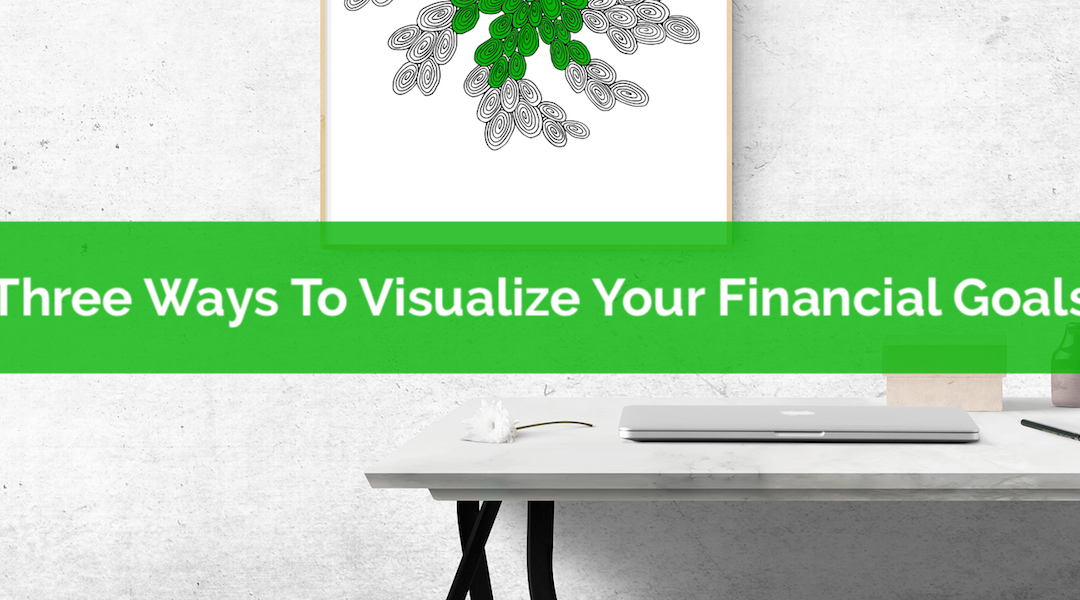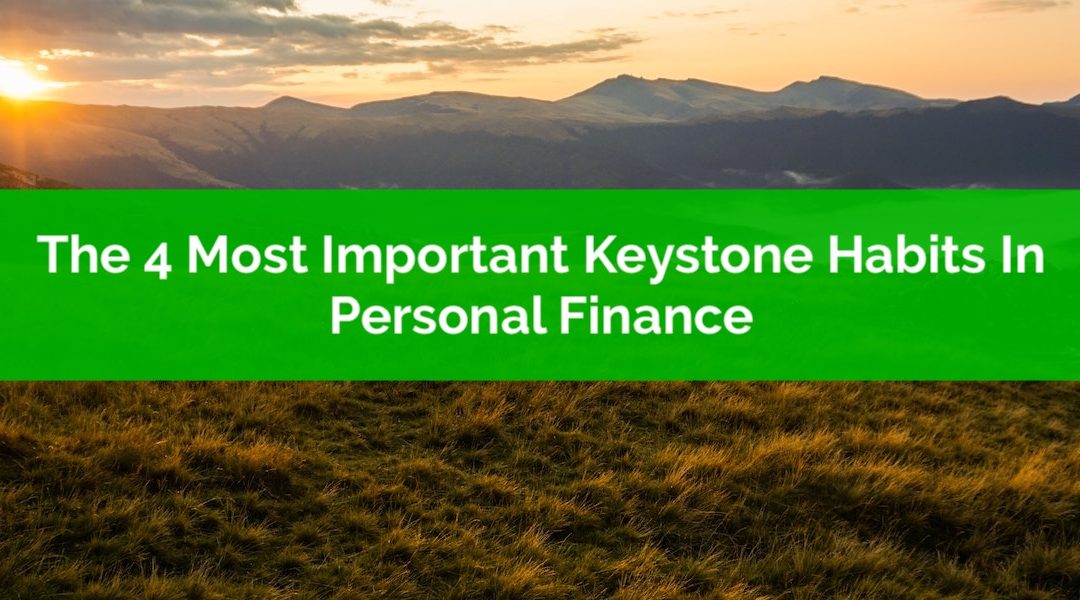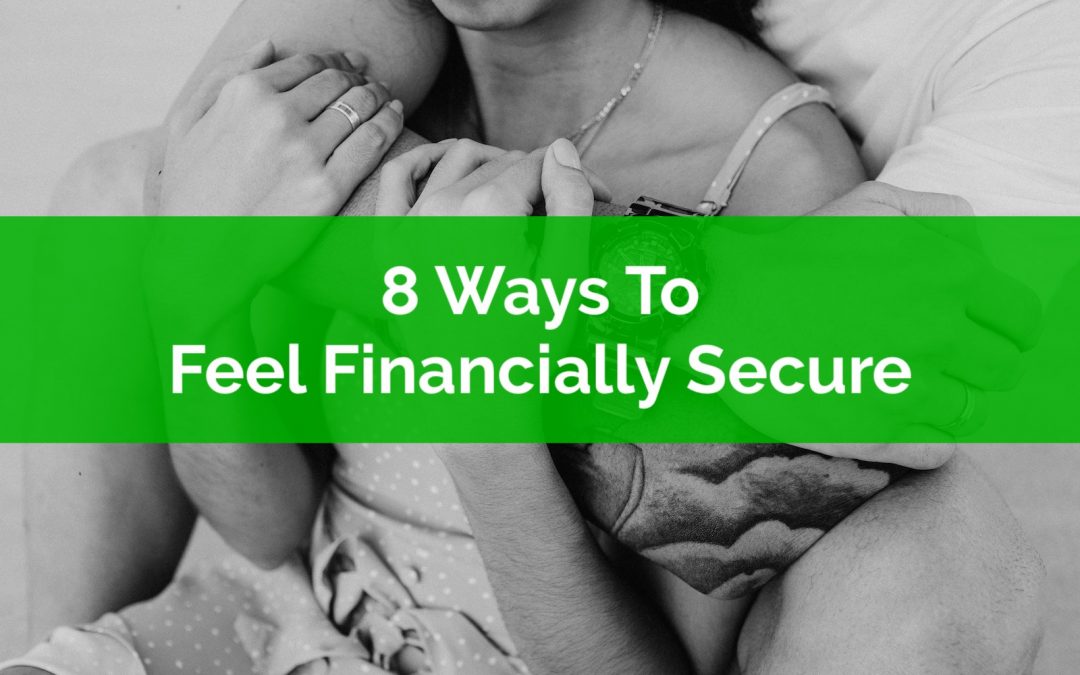
by Owen | Jan 16, 2023 | Behavioral Finance, Budgeting, Financial Goals, Financial Planning, Get Out Of Debt, Income
Goals are a fantastic way to motivate yourself. Having a big, ambitious goal will help you prioritize other things in your life. It gives you something to work toward. Something that you care deeply about. It helps you balance what you need today with what you want to achieve in the future.
Financial goals have made a huge difference in my life. Setting powerful financial goals has helped me focus on the things that matter to me and ignore the things that don’t. They’ve helped me prioritize my spending to better align with my short and long-term goals.
Because of these financial goals, I’ve cut $1,000’s per year in wasteful spending. Spending that really didn’t provide much value to me. Spending that was mostly driven out of habit. Spending that I’d gladly cut in favor of my long-term goals.
Once you have a financial goal then you have to track it. And this can be a challenge on its own.
One thing that helps me reach my financial goals (or any goal for that matter) is to track my progress visually.
Maybe I’m a visual person but I find it helps me to “see” where I’ve come from and where I’m going. It’s super motivating to see that I’m hitting my monthly goals and that I’m on track to hit my long-term goal.
There are a few different ways to visualize your goals. I’m going to share my three favorite visualization techniques with you.

by Owen | Jan 9, 2023 | Behavioral Finance, Budgeting, Financial Planning, Get Out Of Debt, Retirement Planning, Saving Money
When it comes to personal finance there are many different milestones and each one is its own individual achievement. Personal finance is full of achievements you need to ‘unlock’ to be successful. The more achievements you unlock, the more successful you’ll be at building wealth.
To ‘win’ the money game you need to hit a certain number of milestones along the way. Some achievements are required before you can move forward in the game. Others enable you to accelerate your wealth even faster. And then there are some achievements that are just interesting check points along the way.
Here are 30 personal finance achievements you need to unlock!
How many have you unlocked already?

by Owen | Sep 6, 2022 | Behavioral Finance, Budgeting, Buying A Home, Down Payment, Emergency Fund, Financial Planning, Get Out Of Debt, Retirement Planning
There are certain habits that make things way easier, these habits are more important than others, these habits are called keystone habits. Keystone habits create a foundation from which you can make even bigger and more positive changes. Mastering the right keystone habit can transform your life.
We have habits everywhere in our lives and we build new habits all the time (both good and bad!). We use these habits to support our daily lives. These habits make our lives easier, you don’t have to think about what you’re doing, it just comes naturally.
Having a solid keystone habit will create a foundation from which you can make even bigger changes. Eating right, getting regular exercise, sleeping eight hours per night, these are all keystone habits that create a solid foundation from which you can make even more positive changes in your life.
The best part about keystone habits is that once they’re established they don’t take much effort to maintain.
When it comes to personal finance there are 4 important keystone habits. Once these habits are established they create a ripple effect through the rest of your personal finances.
If you practice these four keystone habits then there is nothing you can’t achieve with your personal finances!

by Owen | Jun 6, 2022 | Budgeting, Emergency Fund, Financial Goals, Get Out Of Debt, Investment Planning, Retirement Planning
Feeling financially secure has nothing to do with how much money you have, or how much money you earn, feeling financially secure is all about how you feel about your finances, how you manage your finances, and your attitude towards money in general.
Financial insecurity is a very common feeling. It affects both low-income and high-income households, it affects both young and old. In fact, according to a recent FP Canada survey, at least half of us are affected by financial stress in some way.
“Half (50%) of Canadians say that financial stress has impacted their life in at least one way, with health issues (18%), marriage/relationship problems (15%), distractions and reduced productivity at work (14%), and family disputes (13%) the most common ways stress affects them.” Source.
When talking about financial security, it’s important to differentiate between BEING financially secure and actually FEELING financially secure. It’s possible to BE financially secure but not FEEL that way. It’s possible to be in a good financial position but without the right knowledge, routines and plans, it may not actually feel that way.
In this post we’ve outlined eight things you can do to FEEL financially secure (even if you still have the exact same income, spending, and savings).

by Owen | May 9, 2022 | Buying A Home, Get Out Of Debt, Pay Off Mortgage
One of the largest purchases we’ll ever make is when we buy a home. It’s an exciting time but also very stressful. Along with this large purchase comes an equally large mortgage. This new debt will typically take between 25 and 30 years to pay off, but many people choose to pay off their mortgage earlier.
Paying off the mortgage early is an important financial goal. It’s a goal that typically (and hopefully) is achievable before retirement.
Paying off the mortgage early is a great medium-term goal, something achievable within 10-20 years (or even earlier if you’re really aggressive). This makes it a very interesting financial goal to include in your financial plan. Unlike investing, paying off debt is very predictable, so it can be very motivating to see steady progress against your mortgage each year.
Getting rid of your mortgage is a great feeling! It’s incredibly satisfying to see those mortgage payments disappear forever. It’s also nice to know that you have the security of owning your home outright.
Paying off the mortgage early also removes a large burden from your monthly cash flow. This creates a lot of flexibility to make lifestyle changes, switch careers, take more time off work, or even retire early.
There are different ways to pay off a mortgage early. Which method you choose will depend on your personal and financial goals. The important thing is to make a plan.
Making a mortgage payoff plan can be exciting. It’s amazing to see how those future payments can quickly reduce your mortgage. Making a plan is easy and we’ll show you a couple of examples using our free debt payoff tool. It’s always important to balance paying off the mortgage early against other financial goals, like saving for retirement. So make sure your goal to pay off the mortgage early is part of your overall financial plan.

by Owen | Sep 27, 2021 | Get Out Of Debt
When it comes to paying off debt there are two popular strategies. These strategies are known as “the debt snowball” and “the debt avalanche”.
These are the two most popular strategies to pay off debt and they either take advantage of human psychology OR mathematics to help pay off debt faster.
Which debt payoff strategy you should choose depends on your situation. Choosing one method vs the other may mean paying off your debt off faster or…. it could mean taking longer to pay off your debt and making more interest payments.
The problem is that everyone is different and there isn’t a one-size-fits-all strategy. We have different amounts of debt, we have different types of debt, and those debts carry different interest rates (and to make it even more complicated, some kinds of debt are tax deductible or let you reduce payments in difficult times, like some student loans, which can be a very valuable benefit!).
On top of this we all value things differently. Some of us prefer that immediate feedback of paying off the first debt the fastest (even if it means paying a bit more in the long run). Whereas some of us prefer to delay gratification a little bit, as long as it’s worthwhile and we pay less interest in the end.
Choosing the right debt paydown strategy will depend on your personal situation and who you are as a person. In this post, we’ll summarize the two different methods and propose a third method that combines the best of both worlds.
We’ll also show you a cool little debt calculator that will help you decide which debt to pay off first.






